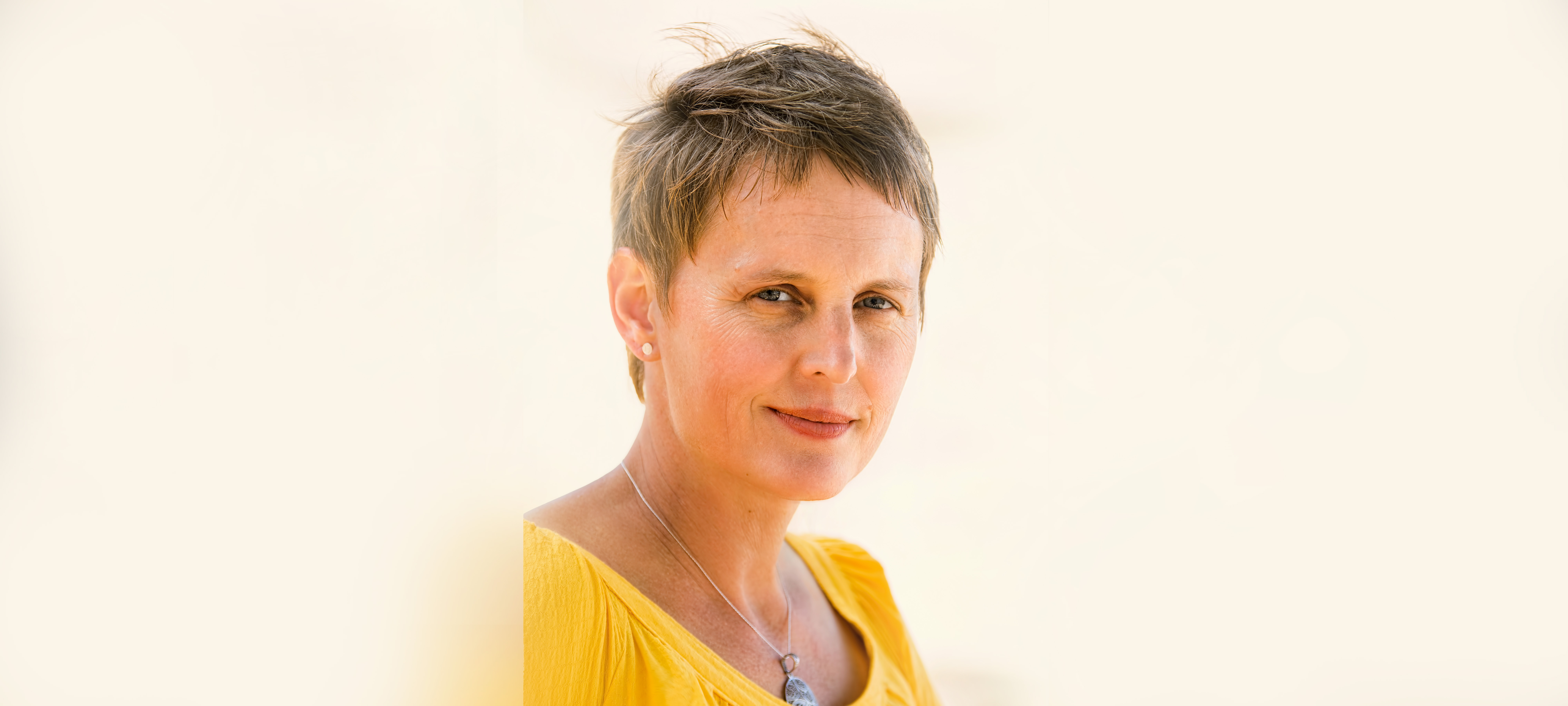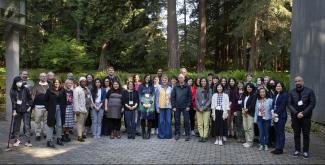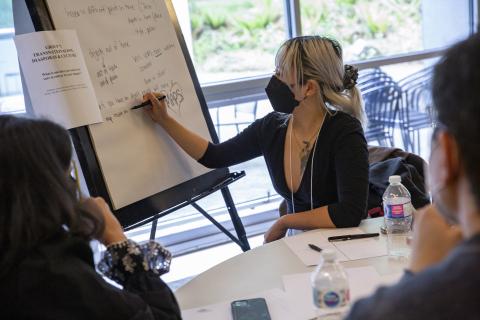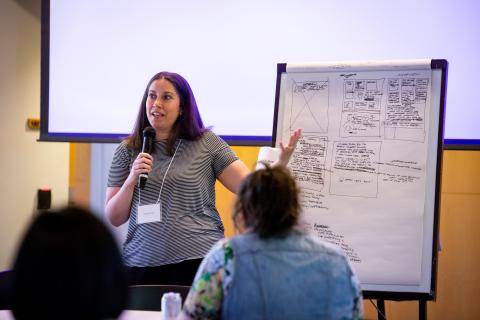
Dr. Antje Ellermann, a professor of political science and founding director of the UBC Centre for Migration Studies, is dedicated to understanding the intersection of migration, citizenship and politics in liberal democracies. Her research confronts the challenge of engaging in constructive discussions around migration and diversity in an increasingly polarized world, by incorporating knowledge mobilization practices that connect people with their individually lived experiences.
Graphic Narratives of Migration, a project led by Dr. Ellermann, Mireille Paquet (Concordia University), Frederik Køhlert (University of East Anglia), and Sarah Leavitt (UBC), brought together a diverse team of migration scholars from UBC and Concordia, along with graphic artists from Vancouver. Through the collaborative effort to create a collection of stories about migration, the project aimed to break down barriers between different academic fields and create a unique approach to address the project's goals. They came up with the idea of using comic strips, which they refer to as graphic narratives, to allow people to connect with the stories, regardless of any experience in drawing.
“What made the project fascinating was the shift in dynamics, as academics were not the experts in creating comics—the artists held that expertise. This leveled the playing field and fostered an environment of equal contribution. This experience proved fruitful as the groups including over 30 faculty, graduate students, and community partners, in collaboration with the artists, blended different forms of knowledge, including personal experiences, research insights and shared knowledge, resulting in the creation of unique and curated graphic narratives” shares Dr. Ellermann.

Participants from the Graphic Narratives of Migration Workshop (May 2022)
Dr. Ellermann’s projects embrace diverse forms of knowledge mobilization, to more effectively engage with the wider community. For example, the Belonging in Unceded Territory project uses animations and podcasts to provoke reflection on the way that colonialism has impacted social belonging in Vancouver, on Indigenous territories. They challenge settlers (both longstanding and new) to examine their positionality, develop inclusive narratives and take actionable steps towards reconciliation. Acknowledging that collaborative research is an ongoing journey, and as Dr. Ellermann’s relationship with her community partners strengthened, she realized the importance of incorporating both Indigenous and settler perspectives when exploring these questions of belonging. They organized talking circles, facilitated by Indigenous community member, Jessica Seegerts, whose expertise played a pivotal role in shaping the dialogue and guiding their overall research approach.
While Dr. Ellermann is deeply committed to respectful collaboration, she acknowledges the unique challenges inherent in community-based research. These challenges are particularly pronounced in communities burdened by historical mistrust that results from exploitation and persisting racial injustices. It is imperative to allow time for cultivating trust, make available resources for the co-creation of research, and to navigate the intricate dynamics of collaborative work with sensitivity and ethical consideration. In such partnerships with communities, the research process becomes a dynamic and iterative dialogue, which may deviate from conventional academic timelines or encompass innovative and non-traditional outputs, such as animated videos or graphic novels.
“Early-career researchers must be cautious and thoughtful in navigating these dynamics and institutional expectations,” advises Dr. Ellermann, also stressing the need to be open to improvisation and fluidity – “if your focus is solely on getting publication for tenure, it can jeopardize the collaboration. Preserving the relationship is the researchers’ ethical responsibility; they should prioritize actions to support that and be willing to pivot based on the communities’ needs and expectations. Community-engaged research is a learning process that can only be done with the support of the community.”
Dr. Ellermann emphasizes that engaging in community work is a privilege that offers intrinsic rewards and a unique perspective, “Personally, it greatly enriches the experience. Engaging in community work has been particularly refreshing for me, especially at this stage in my career, where I have been involved in similar activities for a long time. It pushes me out of my comfort zone and allows me to learn and grow, feeling like a student again.”
Kx takeaways:
- Recognize that community-engaged research is a spectrum, ranging from co-developing the entire project with the community, to establishing and examining a research question within your discipline and bringing it to a community partner for exploration.
- The research question may not always be negotiable, but the benefits to the community should always be clear.
- Research projects are an evolution and can benefit tremendously by being open to additional perspectives and audiences or incorporating non-traditional forms of media to achieve your goals.
- If you invite the community to offer their input and expertise, you must be willing to take it seriously and incorporate it into your plan.

